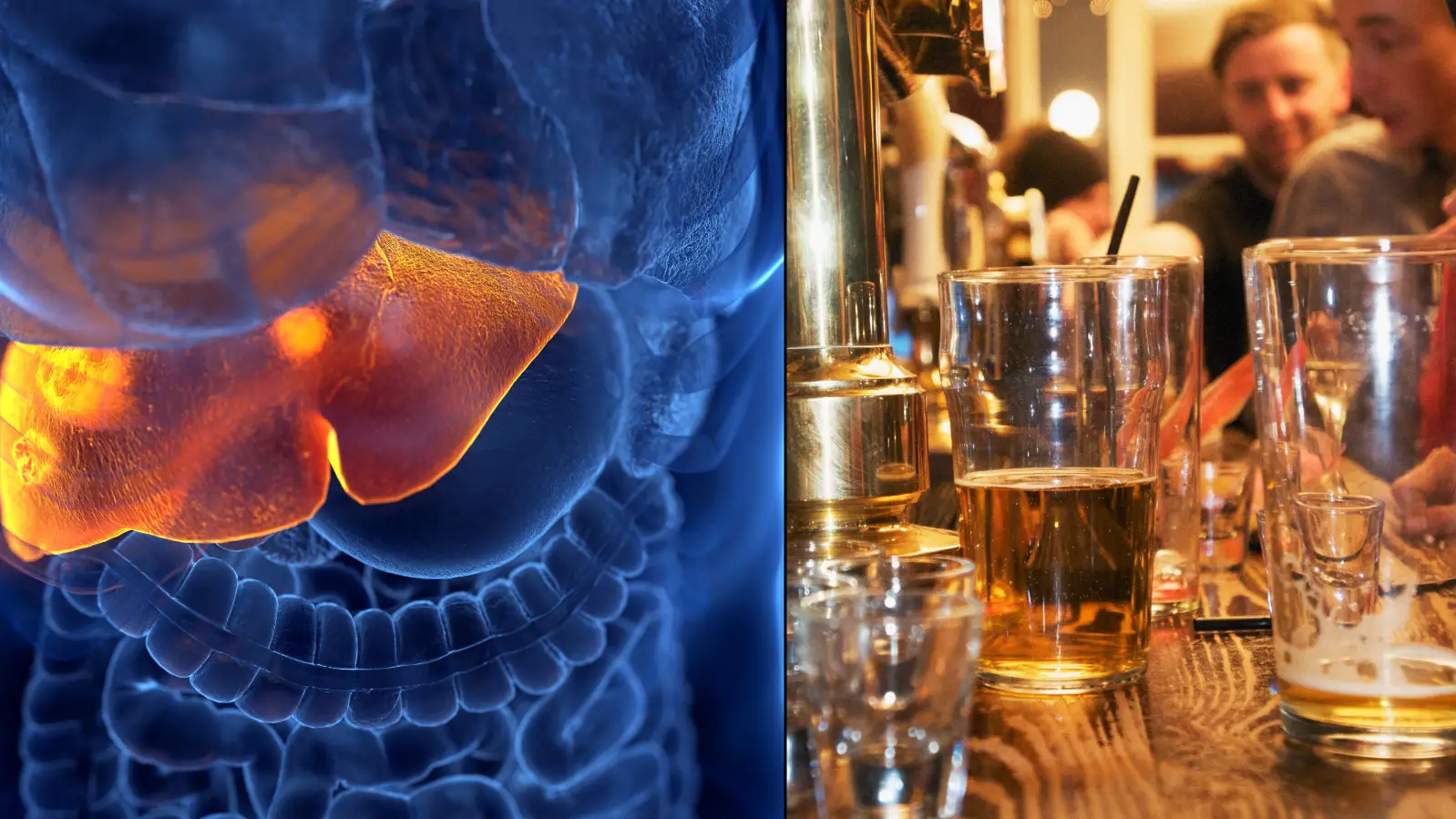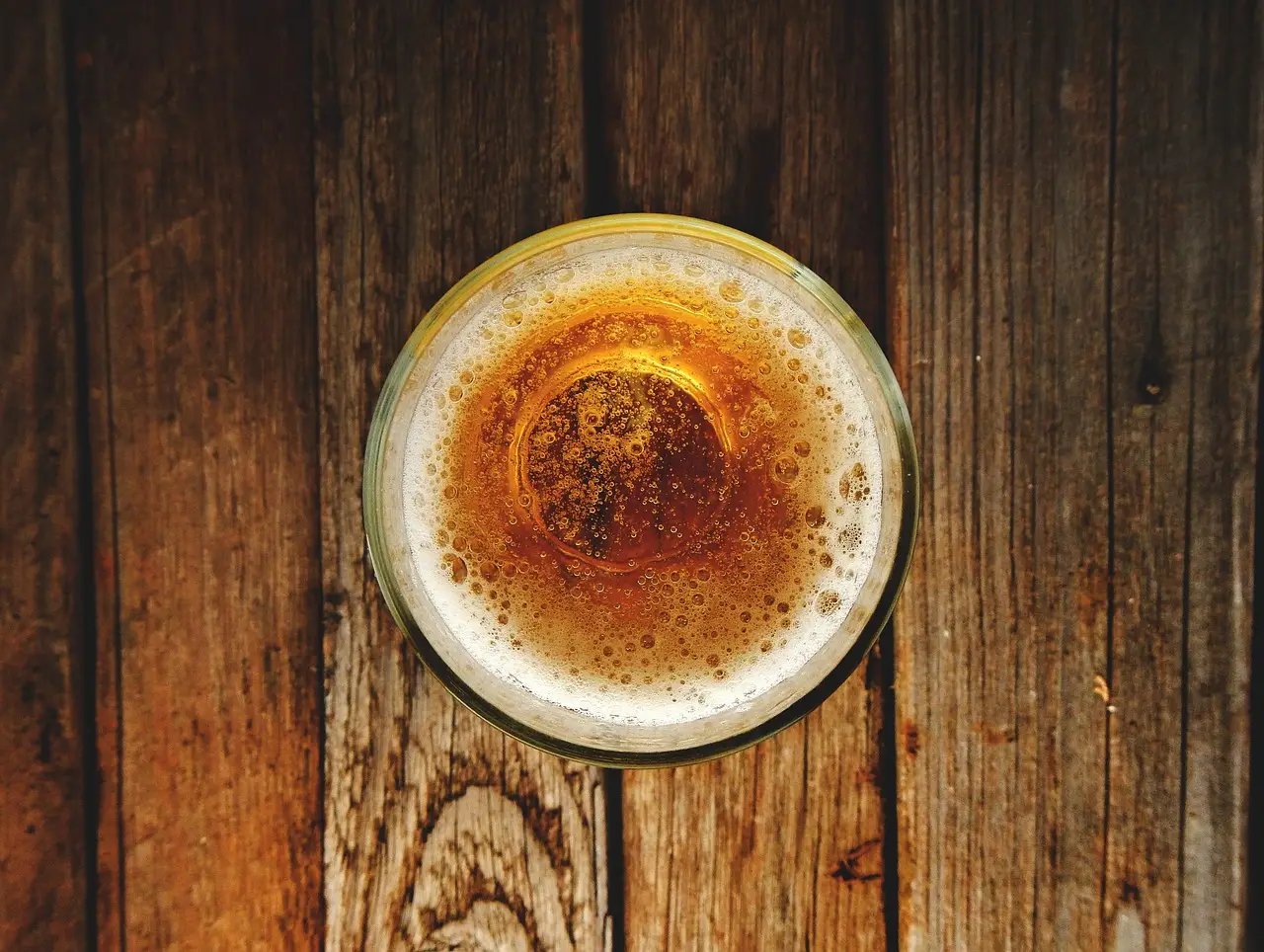
It's New Year's Eve, which means lots of people will be heading out out tonight ahead of nursing a massive hangover tomorrow morning.
From flowing beers to a few flutes of bubbly, alcohol is generally the go-to beverage between Christmas and New Year’s Day for us Brits.
But if you think that a couple of days spent partying on the trot isn’t going to affect your liver and health, think again.
Advert
There are many people who will have decided that 2024 is the time to quit alcohol for good - or perhaps easing in with Dry January.
There are lots of benefits to easing off the booze, especially for your liver, seen as it can actually repair itself after an extended period without alcohol.

According to a transplant hepatologist at Piedmont Transplant, Lance Stein, M.D: “When alcohol, or ethanol, reaches the liver, the cells of the liver have enzymes that help with the digestion and processing of alcohol.
“When alcohol then reaches the blood, that’s when you feel the effects of alcohol.”
But alcohol is a toxin to the liver, which can lead to damage.
Dr Stein continued: “As the liver is processing alcohol, it can damage the liver’s enzymes, which can lead to cell death.
“As with any damage to any cell of any organ, there is always a process of healing.”
So, how does the liver heal and within what amount of time after quitting booze?

An amazing thing about the liver is its self-healing abilities, but if it needs to heal too much then it could lead to a non-functioning organ.
This is because when cells die in the liver, scar tissue develops, which is known as liver cirrhosis.
If a person drinks to excess and the liver is continuously healing and scarring, eventually it’ll become too scarred to function as usual.
However, it all depends on how much damage has been done to the liver.
Your liver might be able to start healing as early as a few days to a few weeks after giving up the booze if it isn’t too damaged.
Dr Stein explained that ‘if the damage to the liver has been long-term, it may not be reversible’.
This is why it’s important to keep your drinking to a safe level so that it can heal when you stop drinking.
The doc said: “It’s important to know what you’re drinking because when people mix their own drinks, they’re often using more than the recommended amount.
“They think they’re drinking one drink, but they’re actually having two or three.”

One serving of alcohol looks like 5 to 6 ounces of wine, 1.5 to 2 ounces of liquor or 12 ounces of beer and only two to three drinks per day for men and one for women is recommended.
Essentially, if you keep to the required amount of alcohol, when it comes time for you to go teetotal, you’ll be able to help your liver to get back into tip top shape in no time.
However, the doctor warned: “People who drink more heavily should be concerned and should seek medical counseling for assessment of whether they need assistance with stopping alcohol use or if they have any damage as a result of long-term alcohol use.”
Is quitting alcohol on your new year’s Resolution list?
Topics: News, Health, Food And Drink
